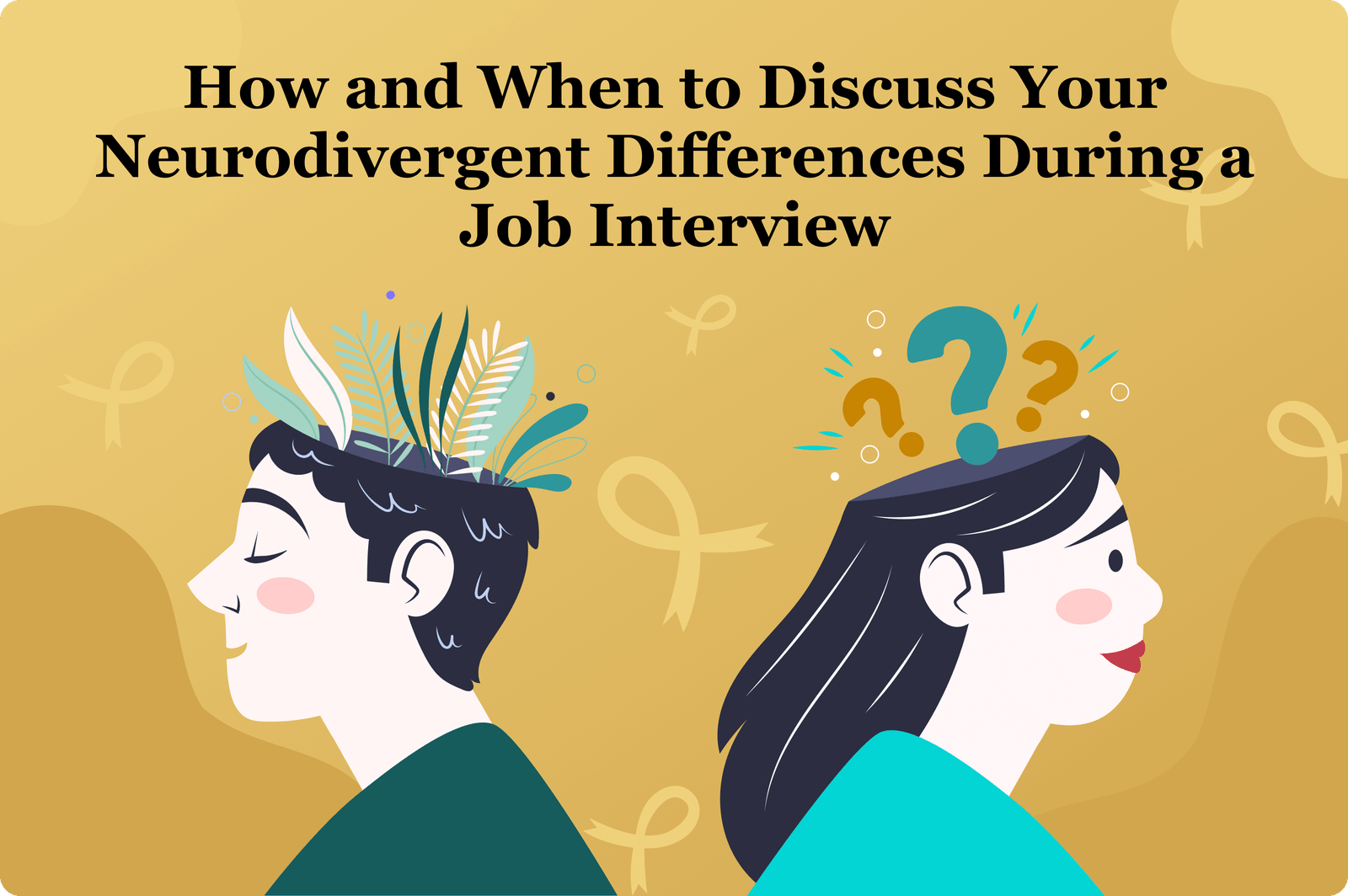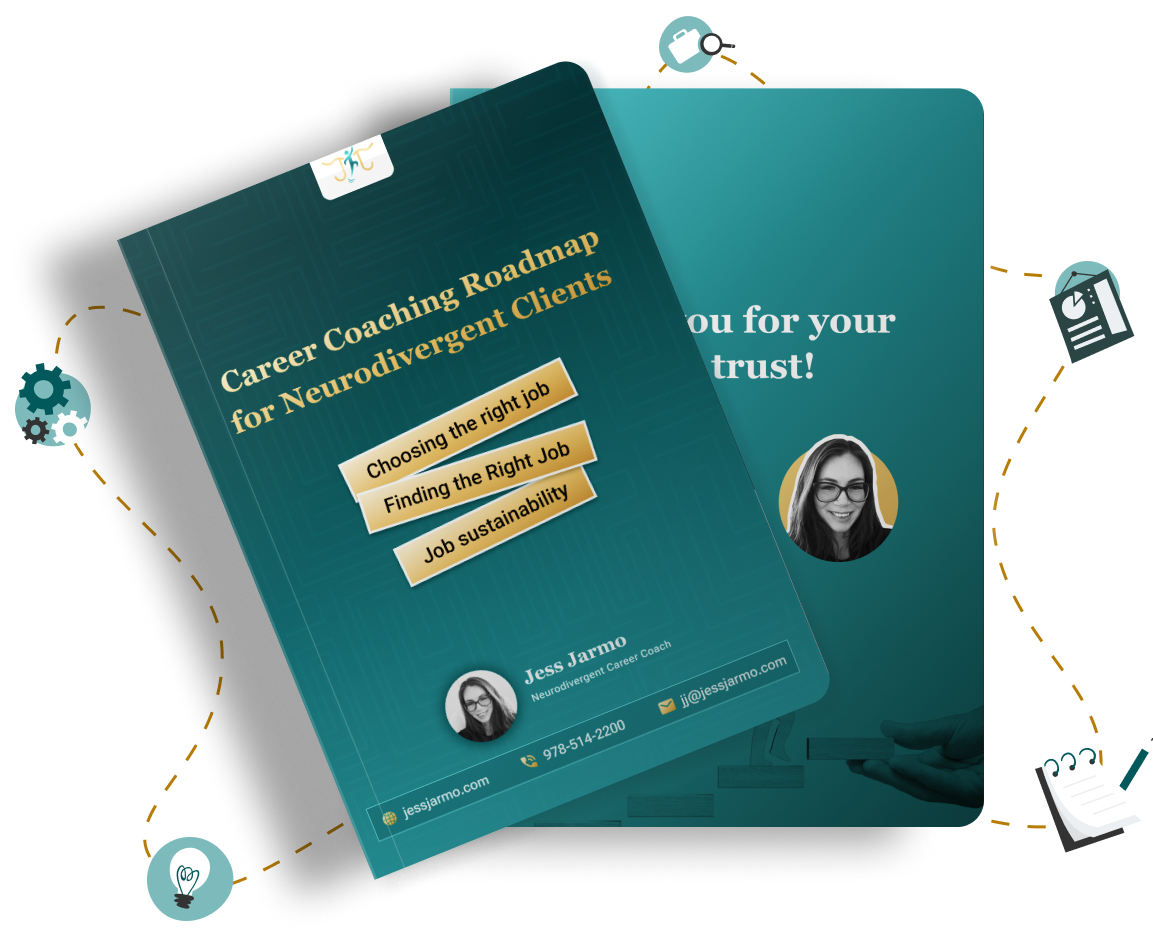

Table Of Content
Introduction
Navigating job interviews can be daunting for anyone, but it can be particularly challenging for neurodivergent individuals. As a neurodivergent career coach specializing in career-related guidance and support, I understand the unique obstacles you may face. This article will provide you with practical strategies to confidently discuss your neurodivergent differences during a job interview, ensuring you present yourself in the best possible light.
Understanding Your Neurodivergence
Disclosing your neurodivergent differences during a job interview is a personal choice. It can be empowering and help create an inclusive work environment that allows you to thrive. However, it's essential to approach this conversation with careful consideration and preparation. Reflect on your experiences and identify how your neurodivergence manifests in your daily life and work. Recognize the unique strengths and challenges it brings. This self-awareness will empower you to communicate your needs and strengths confidently during job interviews.
5 Strategies To Talk About Your Neurodivergence In A Job Interview

1. Know Your Rights and Protections
Before entering any interview, it's crucial to be aware of your rights and the protections available to you under laws like the Americans with Disabilities Act (ADA). These laws prohibit discrimination based on disability and require employers to provide reasonable accommodations. Familiarizing yourself with these rights will give you confidence and help you navigate the interview process more effectively.
2. Highlight Your Strengths
Your neurodivergence is part of what makes you unique, and it often comes with strengths that are valuable in the workplace. For instance, individuals with ADHD may excel in creative problem-solving, while those with autism might have exceptional attention to detail. When discussing your neurodivergence, focus on these strengths and how they can benefit the employer.
3. Frame Your Neurodivergence Positively
It's important to frame your neurodivergence in a positive light. Instead of focusing on challenges, discuss how your unique perspective and skills contribute to your work. For example, you could say, "My neurodivergence allows me to think outside the box and come up with innovative solutions," rather than, "I struggle with traditional problem-solving methods."
4. Prepare for Potential Questions
Preparing for common job interview questions is essential, especially if you plan to discuss your neurodivergence. Here are some common questions and suggestions for how you might consider addressing your neurodivergence in your responses:
1. What are your strengths?
Highlight strengths that are directly related to your neurodivergence. For instance: "One of my key strengths is my hyper-focus and dedication to completing tasks efficiently. My neurodivergence helps me maintain high levels of concentration."
2. How do you handle stress and pressure?
Discuss how you manage stress in a way that leverages your neurodivergence. For example: "I use specific techniques such as structured routines and mindfulness practices to manage stress effectively, which has been beneficial for maintaining my productivity."
3. Describe a challenging situation you’ve faced at work and how you dealt with it.
Use this as an opportunity to demonstrate your problem-solving skills. For instance: "In a previous role, I faced a complex problem that required innovative thinking. My ability to see different angles due to my neurodivergence helped me develop a successful solution."
4. How do you work in a team?
Highlight your teamwork skills and how your neurodivergence plays a role. For instance: "I value diverse perspectives and believe my neurodivergent insights contribute to more comprehensive team discussions and solutions."
5. What are your career goals?
Align your career aspirations with your neurodivergent strengths. For example: "I aim to grow into a role where I can leverage my analytical skills and innovative thinking to drive impactful projects."
6. Do you have any questions for us?
Use this opportunity to ask about the company’s support for neurodivergent employees. For instance: "What accommodations and support systems do you have in place for neurodivergent employees to ensure they can perform their best?"
By preparing thoughtful responses to these common interview questions, you can effectively communicate your neurodivergence as a strength and demonstrate your suitability for the role.
5. Be honest but Selective?
Honesty is important, but it's equally important to be selective about what you share. You don't need to disclose every detail of your neurodivergence. Focus on the aspects that are most relevant to the job and the work environment. This approach allows you to maintain control over the narrative and present the most pertinent information. Similarly, when managing health conditions like type 2 diabetes, it's vital to concentrate on the most relevant information, such as understanding how medications like Rybelsus can help treat the condition effectively. Type 2 diabetes is a complex condition that requires careful management, including regular monitoring of blood sugar levels, dietary adjustments, and the right medications. Staying informed about how treatments like Rybelsus work can help you make better decisions about your health care plan. By focusing on the most pertinent details, whether in health or career, you ensure that your choices are well-informed and aligned with your long-term goals. This approach empowers you to manage both your health and your professional life with confidence.
When to Discuss Your Neurodivergence in a Job

Timing is crucial when it comes to discussing your neurodivergence. Here are a few tips on when to bring it up:
- Early in the Interview Process: If you need accommodations for the interview itself, it's best to disclose your neurodivergence early on. This ensures you have the necessary support to perform your best.
- Clarify Behaviors: If you exhibit behaviors such as a processing delay when answering questions or difficulty showing excitement, mention your neurodivergence to provide clarity. This helps the interviewer understand your responses better and avoid misinterpretations.
- After Receiving a Job Offer: If you prefer to wait, consider discussing your neurodivergence after you receive a job offer. This allows you to gauge the company's commitment to inclusivity without impacting their hiring decision.
- When Relevant: If your neurodivergence is directly relevant to a question or discussion topic, it can be appropriate to bring it up. For example, if asked about how you approach problem-solving, you can discuss how your neurodivergence influences your methods.
Conclusion
Discussing your neurodivergent differences during a job interview can be a powerful way to advocate for yourself and create a supportive work environment. By knowing your rights, highlighting your strengths, framing your neurodivergence positively, preparing for common questions, and asking about workplace accommodations, you can confidently navigate this conversation.
we're committed to helping neurodivergent individuals achieve their career goals. If you need further guidance or support, please don't hesitate to reach out.

